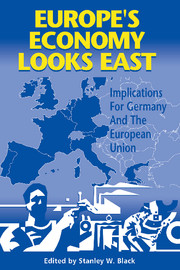The end of the Cold War has had profound implications for the economic and political life of Europe. The Central and Eastern European Countries (CEECs, usually defined as Bulgaria, the Czech Republic, Hungary, Poland, Romania, and Slovakia) emerged from the legacy of forty-five years of Communism with a variety of economic pathologies ranging from misguided price incentives, distorted economic structures, mispriced resources, bankrupt state enterprises and financial institutions to inadequate legal systems and distrusted political institutions. The transition process is expected to be long and difficult. But it represents the most creative opportunity for raising standards of living in the industrialized world since the recovery from World War II. If grasped effectively, this opportunity has every prospect of generating great welfare gains, including substantial spillover benefits to the European Union (EU), not, however, without potential adjustment costs, in the form of increased competition in some EU industries and pressure on transfer programs including the Common Agricultural Policy (CAP).
The primary beneficiaries of the transition process should be the CEECs themselves, although many of their residents have become impatient waiting for the benefits to arrive. The papers in this volume attempt to spell out the costs and benefits of many of the changes that CEECs will have to undergo to reap the gains.
For members of the European Union, the benefits include building market economies and functioning democracies as neighbors and the chance to put an end to the East–West division of Europe. These developments reduce the security problems of Europe dramatically, as the CEECs have shifted from being members of an opposing alliance to applicants for membership in the EU and NATO. In the economic field, significant new trade, investment, and migration patterns are emerging.


